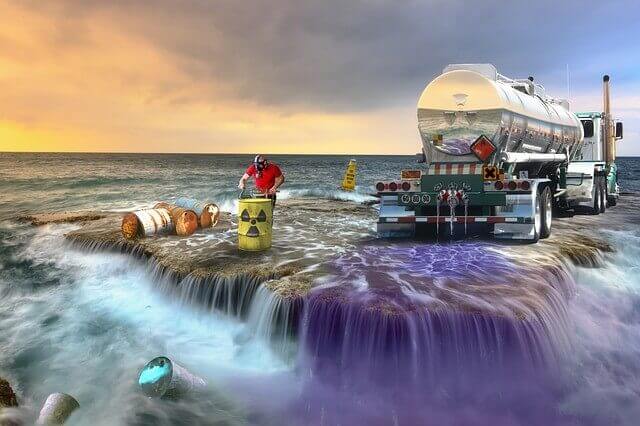One of the world’s largest drug manufacturing locations is becoming the center of a raging debate about the cost of good jobs versus safe drinking water. Hyderabad, India has become an economic center thanks to drug companies setting up shop. But alarming new reports say the monetary boost for the locals and big pharma has a hefty environmental price tag: pharmaceutical waste.
Pharmaceutical Waste Study
According to Technology Networks, drug companies in Hyderabad are dumping “untreated or inappropriately treated pharmaceutical waste into the environment.” There are several laws and regulations in place that detail how these drug manufacturers are supposed to treat waste, but a 2016 study highlighted that the companies were not following the guidelines.
A new investigation by Changing Markets Foundation recently confirmed the findings of the 2016 study and said the problem may be getting worse. It appears the pharmaceutical waste, heavy metals, and industrial solvents from the manufacturing process have been detected at high levels in the local drinking water. The toxic levels are exposing humans and wildlife to serious health risks.
Worryingly, the issues surrounding the Hyderabad factories are being echoed around India.
Devastating Consequences
The combination of the pharmaceutical waste and growing climate change concerns are creating a cascading effect in India. Fish living downstream from plants are having to work harder to survive. These fish are then being eaten by local populations and transferring contaminates.
Aside from the obvious loss of clean drinking water and contaminated food, residents are having to deal with toxic foam that now lines the rivers and lakes in the area. These toxic byproducts of pharmaceutical waste have already caused evacuations of many homes in Hyderabad. Also, the article says that residents have displayed symptoms of eating contaminated fish.
Antibiotic Resistance
Another alarming side effect of the pharmaceutical waste is growing antibiotic resistance. Right now, the World Health Organization (WHO) says in addition to the irresponsible use of antibiotics in human medicine and farming, pharmaceutical waste could be driving large scale antibiotic resistance.
In fact, samples, taken from sewers and other sites around bulk drug manufacturing plants in Hyderabad show high levels of antimicrobial substances. The high level of broad-spectrum antibiotics found in the water was enough to treat 44,000 people daily.
A Bleak Outlook
In India, the outlook for cleanup and control of pharmaceutical waste is weak. There are indications that the government is not taking any action to combat the issue. They have actually lifted restrictions on industrial plant expansion.
In Europe and the U.S., studies have indicated a clear need for the reduction and regulation of pharmaceutical waste. The WHO has issued recommendations it hopes will limit the pollution in the future. It remains to be seen if countries will listen to the warnings and take the steps necessary to protect local drinking water and watersheds.
To learn more about this case or report suspected pharmaceutical fraud, contact Jeff Newman Law today!
